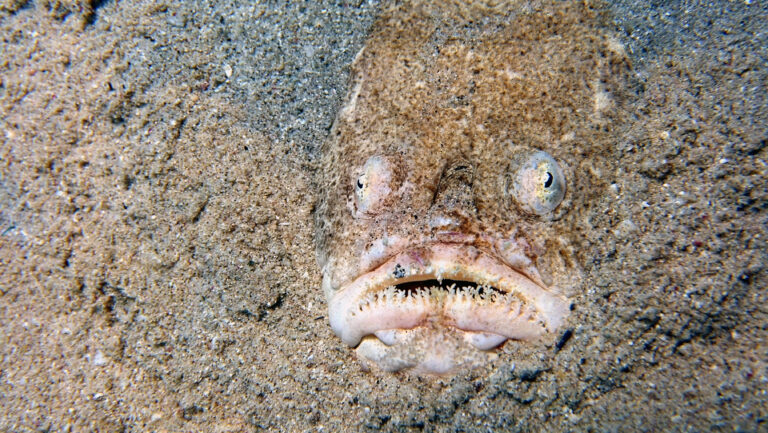How To Quickly Get Rid Of Flies In Your Backyard
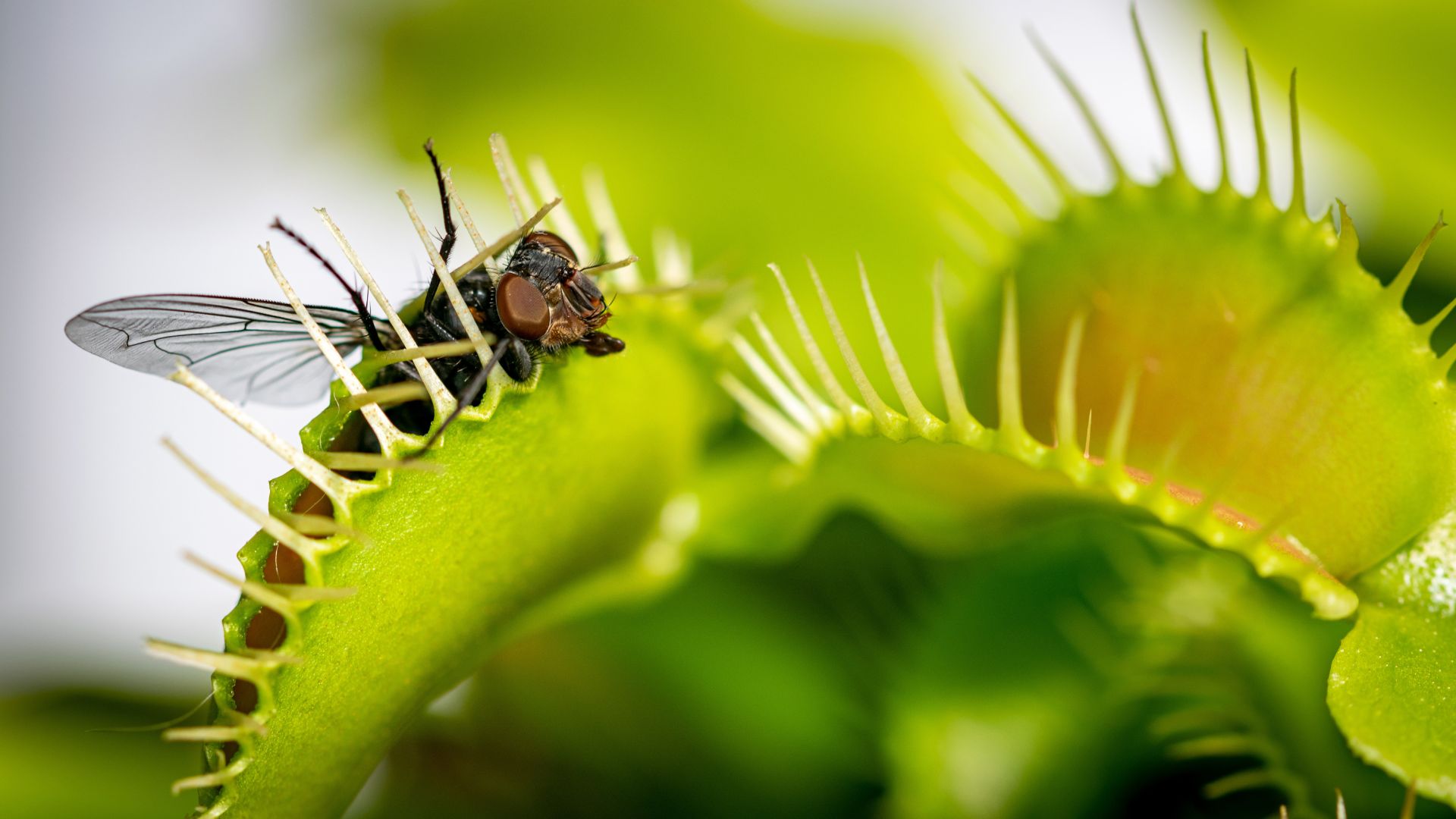
Nothing ruins a backyard barbecue faster than pesky flies buzzing around your food and guests. These annoying insects not only irritate us but can also spread germs and diseases.
Luckily, there are many simple and effective ways to keep your outdoor space fly-free without harsh chemicals. Here are 12 proven methods to reclaim your backyard from these unwanted visitors.
1. Plant Fly-Repelling Herbs
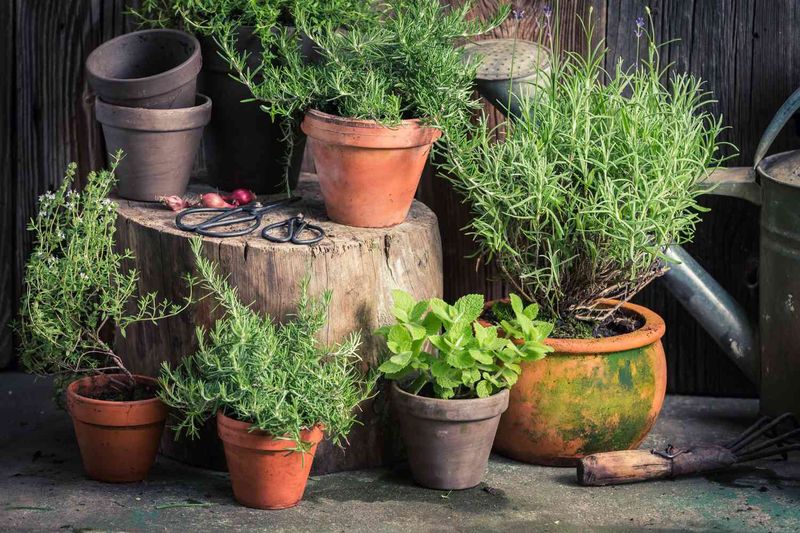
Basil, lavender, mint, and rosemary aren’t just delicious additions to your meals – they’re natural fly deterrents! The strong scents these herbs release confuse flies and mask the smells that normally attract them.
Creating a border of these aromatic plants around your patio or outdoor eating area establishes a fragrant barrier. For maximum effectiveness, place potted herbs on tables or near food serving areas.
Bonus: You’ll always have fresh herbs on hand for cooking while keeping flies at bay. The pleasant aromas will enhance your outdoor experience while driving those pesky insects away.
2. Set Up Fly Traps
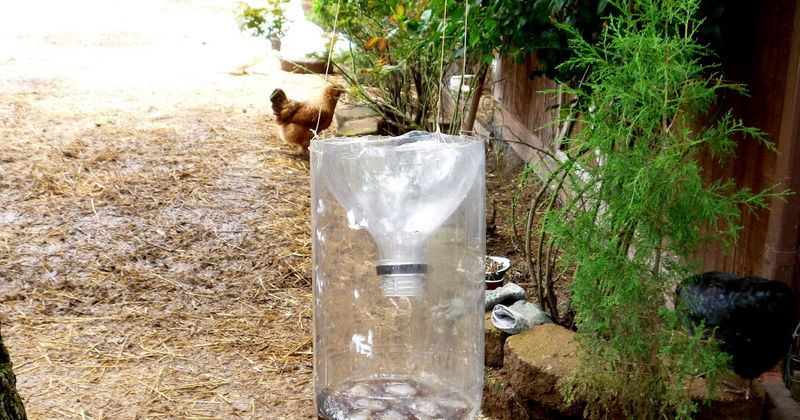
Store-bought fly traps work wonders when strategically placed around your yard. Position them at least 20 feet away from seating areas since their goal is to attract flies before luring them to their doom.
Make your own trap by cutting a plastic bottle in half, inverting the top into the bottom, and adding a mixture of sugar water and apple cider vinegar. Flies enter but can’t figure out how to escape.
Empty and refresh homemade traps every few days for best results. The sweet-sour smell attracts flies from surprising distances, clearing your immediate area of these unwanted guests.
3. Install Electric Bug Zappers
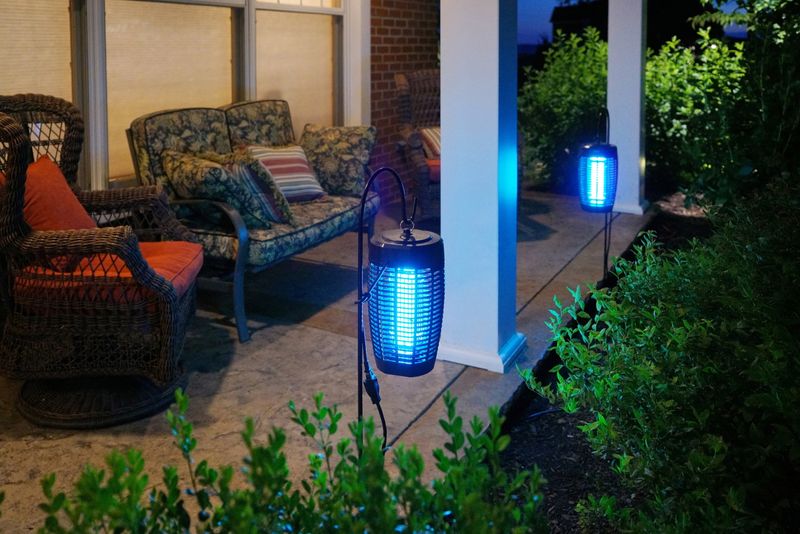
Bug zappers use ultraviolet light to attract flies and other flying insects, then eliminate them with an electric grid. Hang yours away from seating areas – about 15-20 feet is ideal – to draw flies away from where people gather.
Modern zappers are more energy-efficient than older models. Some even include attractant cartridges that specifically target flies rather than beneficial insects.
Clean your zapper regularly to maintain effectiveness. The satisfying zap sound means one less fly to bother you! Remember to empty the collection tray weekly to prevent odors and maintain peak performance.
4. Create Vinegar Deterrent Sprays
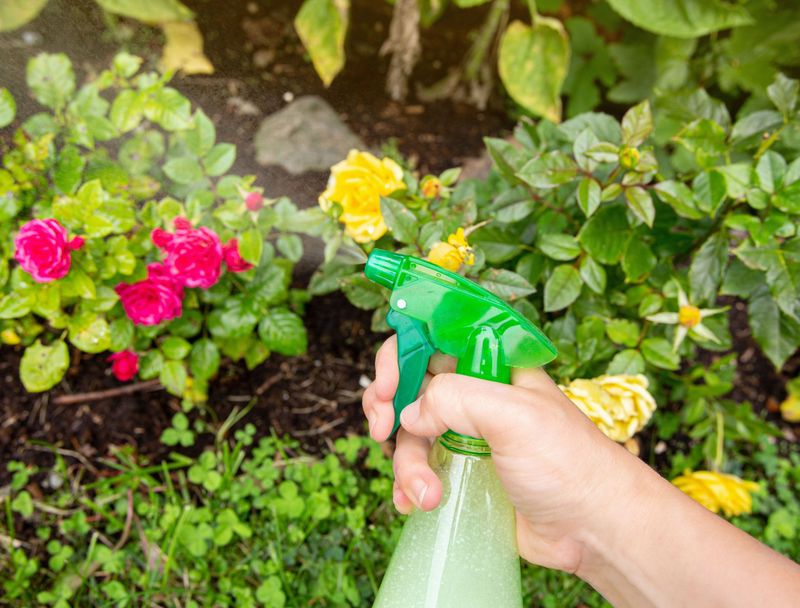
Flies absolutely hate the smell of vinegar! Mix equal parts white vinegar and water in a spray bottle with a few drops of dish soap. The soap breaks surface tension, making it harder for flies to escape if they land on sprayed surfaces.
Mist this solution around outdoor dining areas, garbage cans, and other fly hotspots. The vinegar smell dissipates quickly for humans but remains detectable to flies.
Reapply after rain or every few days during fly season. For a less pungent option, try apple cider vinegar instead – it works nearly as well but has a slightly more pleasant aroma for humans.
5. Use Fans For Moving Air
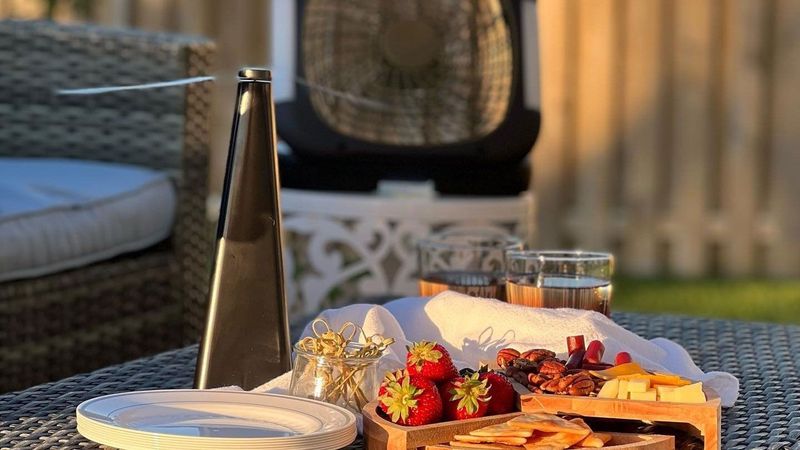
Flies are surprisingly weak fliers! Setting up a few oscillating fans around your outdoor gathering spaces creates air currents they struggle to navigate. Even portable battery-operated fans can make a huge difference in keeping these pests away.
Aim fans to create a gentle breeze across food tables and seating areas. The moving air has the added benefit of dispersing human scents that might attract flies in the first place.
As a bonus, fans keep you cooler on hot days while deterring mosquitoes too. This simple, chemical-free solution works instantly and can be adjusted based on wind conditions and the size of your gathering.
6. Keep Your Yard Clean
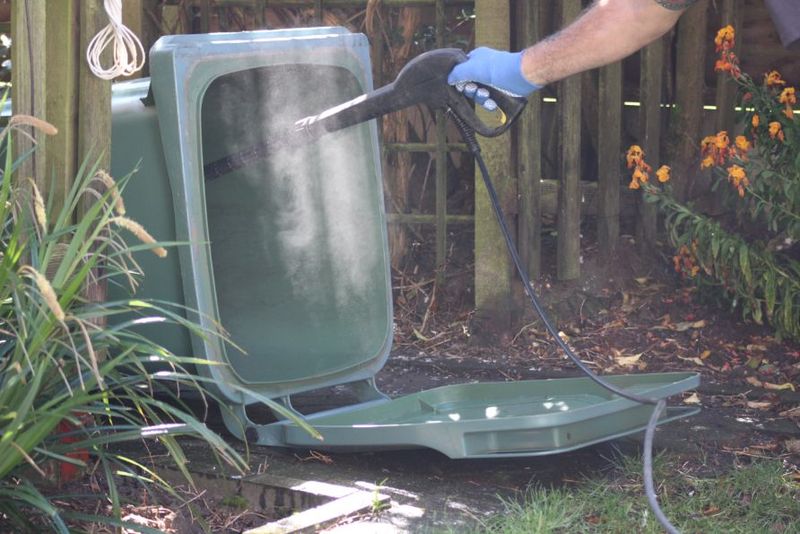
Flies love garbage, pet waste, and rotting plant material. Regular yard maintenance dramatically reduces their breeding grounds. Empty outdoor trash cans frequently and rinse them with a vinegar solution to eliminate lingering odors that attract flies.
Pick up pet waste daily – it’s a prime fly breeding spot. Fallen fruit from trees should be collected promptly, as even slightly overripe fruit becomes a fly magnet within hours.
Trim grass regularly and keep compost piles properly managed with adequate covering. Standing water in planters, toys, or yard depressions should be eliminated – flies need moisture to reproduce and thrive in your outdoor spaces.
7. Hang Clear Water Bags
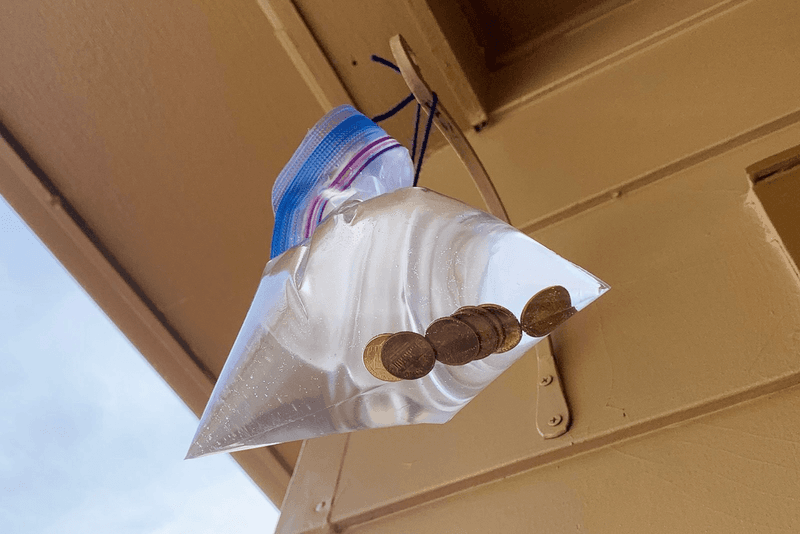
This old-fashioned trick might sound strange, but many swear by it! Fill zipper-seal bags halfway with water, add a few pennies, and hang them around your yard. The theory is that flies see these bags as complex eyes of predators and stay away.
Scientists suggest the refracted light creates prismatic effects that confuse flies’ compound eyes. Position bags about every 10 feet around the perimeter of your gathering space, especially near entrances.
While not scientifically proven, this method costs almost nothing to try. Many homeowners report significant reductions in fly populations after hanging these simple water bags – and you’ve got nothing to lose by giving it a shot!
8. Apply Essential Oils
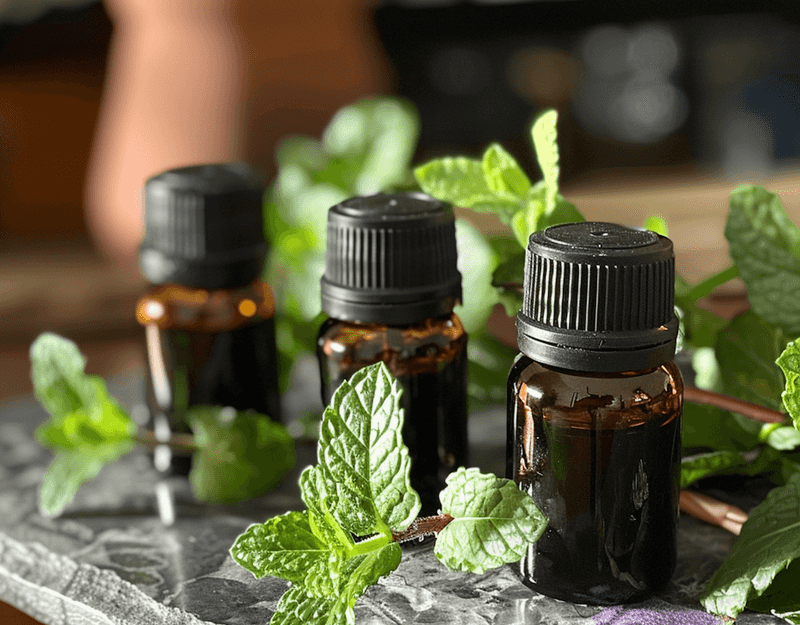
Certain essential oils act as powerful fly repellents. Eucalyptus, lemongrass, lavender, and peppermint oils top the list for effectiveness. Mix 10-15 drops with water in a spray bottle to create a pleasant-smelling barrier flies avoid.
Soak cotton balls in these oils and place them in small dishes around your outdoor space. Replace them every few days as the scent fades. For longer-lasting protection, add essential oils to ribbon and hang strands around your patio.
Another option: mix oils with witch hazel instead of water for a spray that lasts longer on surfaces. The aromatic barrier created keeps flies away while providing a refreshing natural scent for your human guests!
9. Cover Food And Drinks
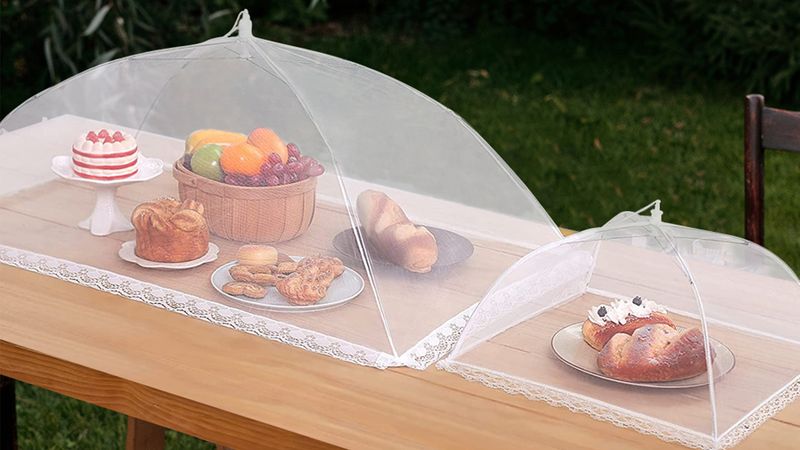
Flies can contaminate food and beverages in seconds! Invest in mesh food covers for outdoor dining – they’re inexpensive and reusable. For drinks, consider cups with lids and straws or specialized beverage covers that snap onto glasses.
Serve food in stages rather than leaving everything out at once. Keep prepared dishes in sealed containers until ready to eat, then promptly store leftovers when everyone’s finished.
Food-grade plastic wrap works in a pinch for covering serving dishes. Decorative options like colorful mesh domes add style while protecting your feast. Remember: uncovered food is basically an engraved invitation for every fly in the neighborhood!
10. Light Citronella Candles
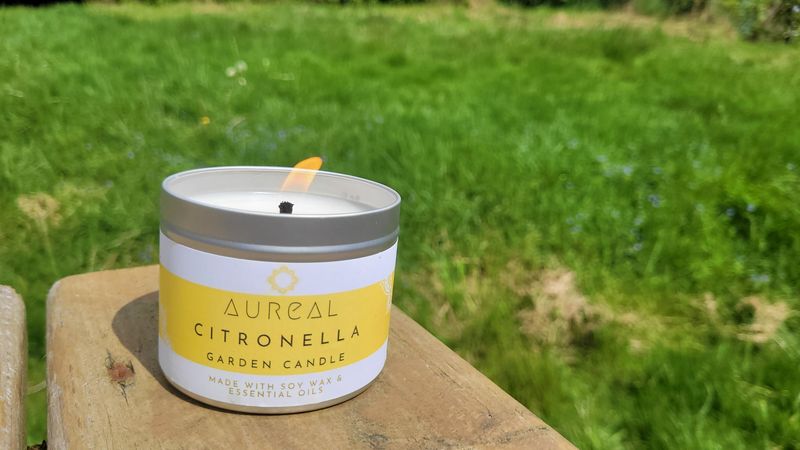
Citronella candles pull double duty by repelling both flies and mosquitoes. The strong lemony scent masks the human odors that attract these insects. Place candles strategically around your outdoor space, especially near food areas and seating.
For maximum effectiveness, light the candles about 30 minutes before your outdoor gathering begins. This establishes a protective perimeter before guests arrive. Choose candles with real citronella oil rather than synthetic versions for better results.
Citronella torches offer even more coverage and add atmospheric lighting to evening events. The pleasant aroma creates an inviting atmosphere while keeping annoying flies from crashing your outdoor fun.
11. Grow Carnivorous Plants
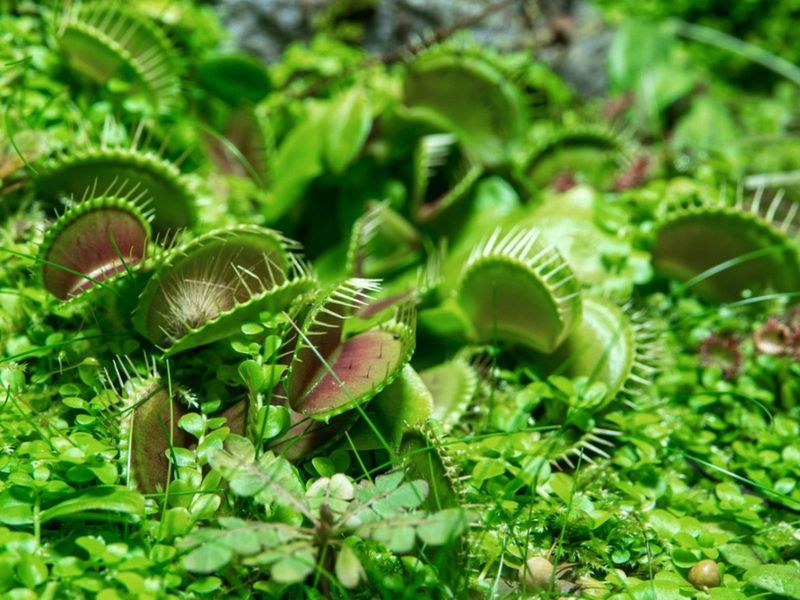
Venus flytraps, pitcher plants, and sundews aren’t just fascinating conversation pieces – they’re natural fly assassins! These carnivorous plants lure flies with sweet-smelling nectar, then trap and digest them, providing a continuous fly-catching service.
Place potted carnivorous plants around your patio or deck. Most require bright indirect light and high humidity, making them perfect for many backyard environments. Each plant can capture dozens of flies weekly.
Kids especially love watching these plants in action. Beyond their pest control benefits, they’re educational and unique additions to your outdoor décor. The plants’ specialized trapping mechanisms evolved specifically to catch flying insects – putting them to work in your yard just makes good sense!
12. Try Commercial Fly Repellents
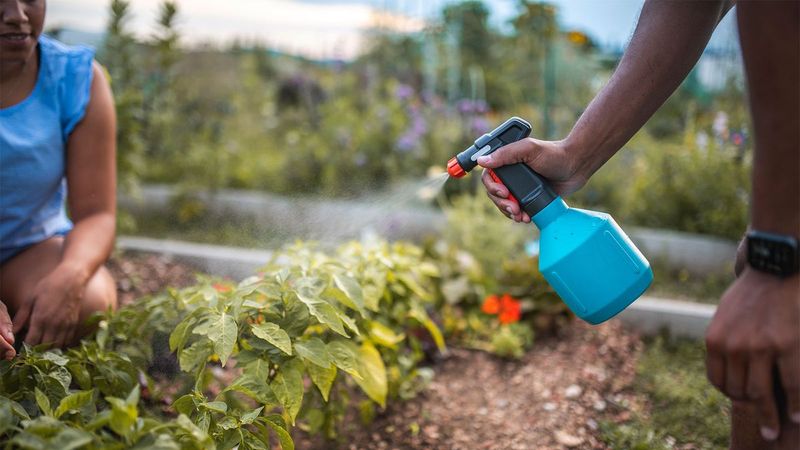
Modern fly repellents have come a long way from toxic sprays of the past. Look for products containing natural pyrethrins (derived from chrysanthemum flowers) or essential oil blends specifically formulated for outdoor use.
Perimeter sprays create invisible barriers flies won’t cross. Apply to fence lines, under tables, and around garbage areas – not directly on eating surfaces. Granular repellents work well scattered around the yard’s edge and near problem areas.
Many garden centers now carry plant-based options safe for use around children and pets. Follow package directions carefully for proper application and reapplication timing. These commercial solutions offer longer-lasting protection than most DIY methods, especially for large gatherings or persistent fly problems.





